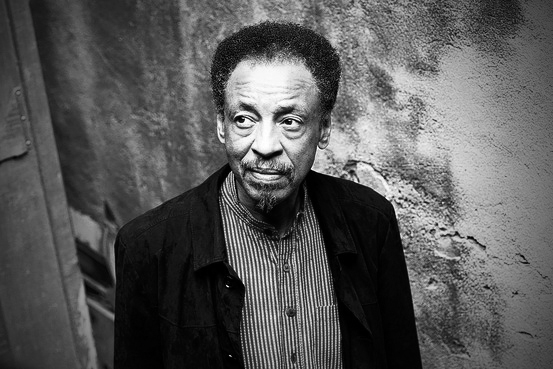Henry Threadgill, aside from being a remarkable alto saxophone player, is one
of the most imaginative of jazz composers today. “He seems to be deliberately
challenging the audience: My lyricism and mastery come complete with thorns
and spikes, and I promise to yank the props out from under you,” quoted John
Litweiler, longtime Down Beat jazz critic, in an article he wrote for the Chicago
Sun-Times. Threadgill was one of the founding members of the Association for
the Advancement of Creative Musicians, a Chicago group that was free-form,
you might say, in its philosophy and approach. Not long ago Peter Watrous of
the New York Times described Threadgill as “perhaps the most important jazz
composer of his generation.” Recent concerts in Chicago have led the local
critics to speak of him as a revolutionary figure, altering the manner in which jazz
itself is going. Said Howard Reich, jazz critic of the Chicago Tribune, “It would
be difficult to overestimate Henry Threagill’s role in perpetually altering the
meaning of jazz..”¦He has changed our underlying assumptions of what jazz can
and should be.”
– An excerpt from a chapter on Henry Threadgill from And They All Sang
(published 2005) by late Pulitzer winning author and disc jockey Studs Terkel –
a book about “forty of the greatest and most deeply human musical figures of our
time”.
Henry Threadgill, is both a composer and multi-instrumentalist. He studied at the
American Conservatory of Music in Chicago. He co-majored in piano and flute, along
with composition. He has had a music career for over forty years as both a leader and as
a composer.
Threadgill’s music has been performed by many of his long lasting instrumental
ensembles, including the trio Air, the seven-piece Sextett, Very Very Circus, twenty-
piece Society Situation Dance Band, X-75, Make a Move, Aggregation Orb, and his
current group Zooid. He has recorded many albums as a leader of various ensembles.
Henry Threadgill’s works for large orchestras, such as ËœRun Silent, Run Deep, Run Loud,
Run High” (conducted by Hale Smith), and “Mix for Orchestra” (conducted by Dennis
Russell Davies) were both premiered at the Brooklyn Academy of Music in 1987 and
1993 respectively.
Henry Threadgill is an artist in a state of constant change, and views his creative process
as an ever-evolving one.

